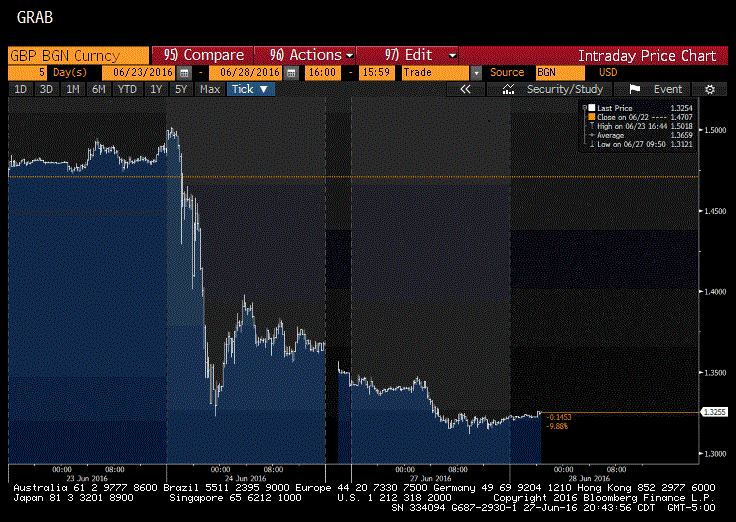The Brexit has caused legions of analysts, economists, strategists and other pontificators to busily rework their assumptions about the world economy incorporating what seemed like an outside possibility last week to the new lay of the land.
Markets fiercely incorporated their new assumptions into prices almost instantaneously – looking a chart of the British pound, you can see when the polls started to show that the Remain camp wasn’t a shoe-in and that the chance of a Brexit was high.
Of course, while the market was efficient in the sense that it immediately factored in the new information about the Brexit, that’s not to say that the market is right. Quite obviously, the market was wrong: we only have to look back to last week when prices were rising because markets thought that Britain would vote to Remain.
The Efficient Market Hypothesis (EMH) says that prices reflect all known information, which may be true, but it gives the impression that the prices are ‘right,’ which clearly isn’t the case. I think if any of the Nobel Laureates ever asked me how they could improve on their theory, I would say that prices reflect the consensus view of all known information.
The consensus was that Britain would remain and prices went higher. When the news came out, prices changed rapidly to reflect the new consensus that the Brits were leaving.
What makes it tough, though, is that we don’t really know what leaving means exactly. We know some things, like that British Prime Minister David Cameron will be stepping down, but we don’t know when exactly (by October) or who will replace him.
Whatever resolution we got from the vote was replaced with new uncertainties about how everything will proceed from here. Even in good times, markets are uncertain about the future and discount their estimates of future value.
When times are unusually uncertain, as they clearly are now, it makes sense to discount what you are willing to pay for something even more. Hopefully, we’ll get more clarity in short order, although this whole process will take years to sort out.
There will be plenty of volatility to endure, so hold on to your Bowler Hat.



